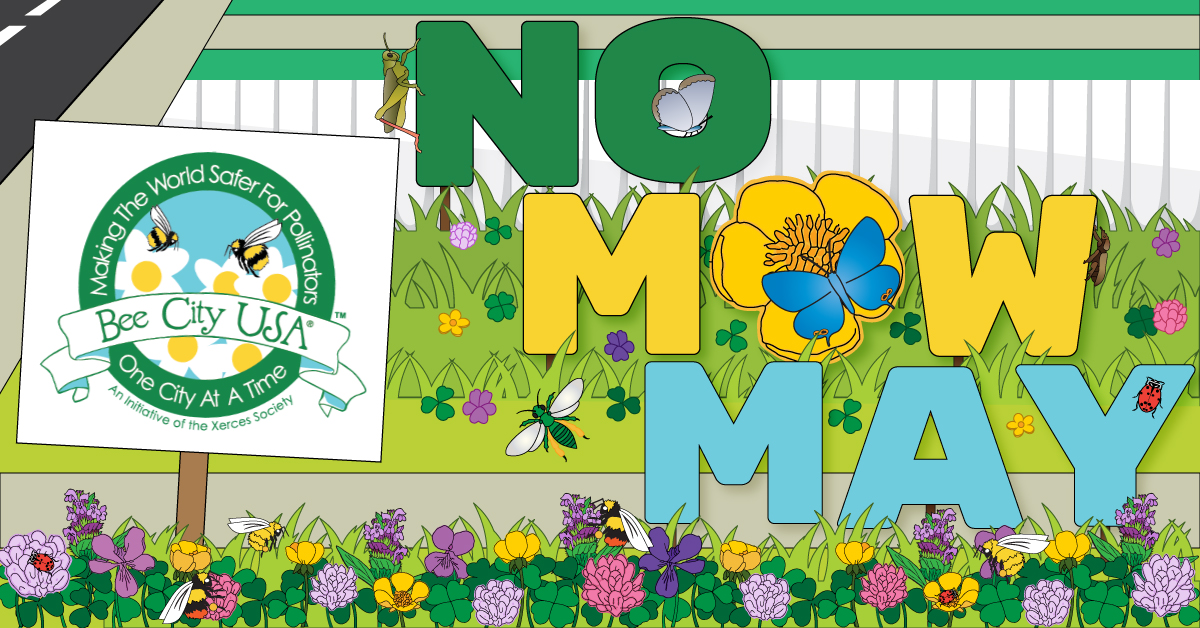No Mow May/Native Plants
No Mow May
When we think of habitat loss, we tend to imagine bulldozers and rutted dirt, but acres of manicured lawn are as much a loss of habitat as any development site. Lawns provide little benefit to wildlife, and are often harmful. Grass-only lawns lack floral resources and nesting sites for bees and are often treated with pesticides that harm bees and other invertebrates.
Re-thinking the American lawn can take a variety of forms from reducing mowing frequency or area mown to permanently converting lawn to a more diverse and natural landscape.
The Research
There are several studies that illustrate how reducing the frequency of mowing benefits bees, as well as butterflies, grasshoppers, and many other insects. In central Kentucky, 26 species of bees were recorded visiting dandelion and white clover in urban and suburban lawns. Researchers in Massachusetts found 93 species of bees visiting lawn flowers, with the greatest diversity and abundance on lawns mowed every two or three weeks. Meta-analyses that looked at results of many studies from Europe and North America found a significant increase in the abundance and species richness of butterflies and bees in less-frequently mowed lawns, and that increased mowing intensity resulted in a significant negative effect on plant diversity and insect diversity.
Some studies also indicate that less intense mowing practices lead to fewer pests, as well as potential cost savings of up to 36% for park managers that by reducing mowing frequency from 15 to 10 times per year. And it is not just bees that benefit from flowering lawns. Surveys of park users in Minneapolis found that 95% of them supported less mowing.
Learn more: Summaries of Published Studies of Conservation Benefits of Reduced Mowing
